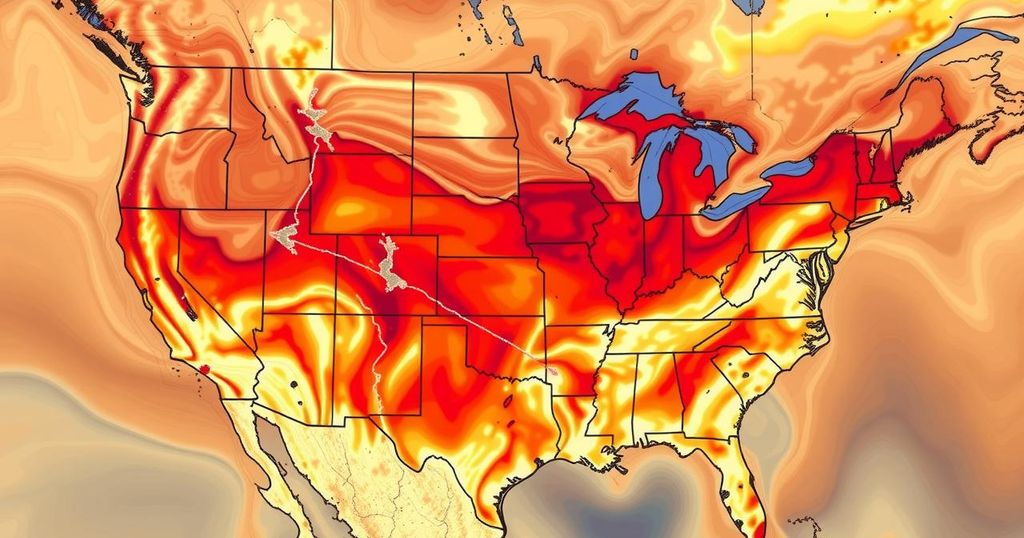Record November Heat Signals Urgency for Climate Action as 2024 Approaches Historic Highs

Earth experienced its second-warmest November on record, raising concerns that 2024 may be the hottest year recorded. Average global temperatures in November reached 14.10°C, exceeding previous year’s figures. Climate experts underscore the urgency for enhanced climate action to mitigate impacts associated with global warming, driven primarily by human-induced activities.
In a concerning development for global climate trends, Earth has recorded its second-warmest November, only surpassed by November 2023. This pattern suggests that 2024 is poised to become the hottest year on record, as reported by the Copernicus climate service. Average global temperatures in November reached 14.10°C (57.38°F), marking an increase compared to the previous year, which recorded an average of 14.98°C (59°F). The sustained warmth follows a summer characterized by unprecedented heat, with places like Phoenix experiencing an alarming 113 consecutive days of temperatures exceeding 100°F (37.7°C).
Experts note that this is likely the first full year where average temperatures will exceed 1.5 degrees Celsius (2.7°F) above pre-industrial levels. The urgency for robust climate action is underscored by the implications of such temperature rises, particularly as they approach thresholds established by the 2015 Paris Agreement. Prioritizing the reduction of fossil fuel reliance is deemed critical to mitigate further climate-related disasters.
Jennifer Francis, a climate scientist, elaborated on the significant rises in temperature recorded during November, emphasizing the alarming pace of warming. She commented on the dire consequences for both natural ecosystems and human society, warning of anticipated increases in extreme weather events and their associated impacts. Moreover, rising ocean temperatures and diminishing ice cover are contributing factors to these alarming trends, highlighting an emergency that demands immediate attention.
The current concerns regarding climate change have been exacerbated by unfavorable weather patterns observed globally in recent months. Following the hottest recorded summer, global temperatures continue to rise, now reflected in November’s climate statistics. This heat surge is attributed to a combination of human-induced climate change and fluctuations such as El Niño, which have historically influenced global weather patterns but have recently yielded unexpected results. The situation is compounded by a concerning reduction of sea ice, especially in Antarctica, which historically helps regulate global temperatures. This report serves to alarm the global community regarding the urgency of climate action and the dire consequences underlying these scientific findings.
The recent report by Copernicus has raised significant alarms regarding climate change, indicating that 2024 is likely to be the hottest year ever recorded. As we observe the implications of increasing global temperatures on both ecosystems and human activity, it becomes imperative to prioritize climate action that aligns with international agreements for temperature regulation. Failure to address these challenges may lead to catastrophic repercussions for global food security, biodiversity, and community resilience against climatic disruptions.
Original Source: apnews.com






